| Spotlight
Education - The Loyal Sidekick!
Sarah Z H
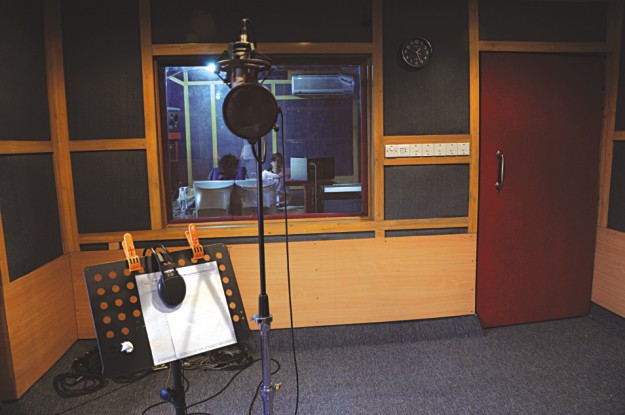
Photo : Yamin Tauseef Jahangir
Music as a career has always received general doubtfulness from people of all ages and capacities. The reasons are simple; it is too much of a gamble for anyone's deserving. And the widely accepted idea of a struggling musician is more old than new. However for some, making a choice and finally choosing music over education becomes a “matching fit'' as often many of these musicians do not have the time or the heart for classes, exams and ofcourse getting a degree.
Saif, the vocalist of the band Groovetrap has a day job at BRAC. He prefers to go on with his education and not give it up. “Education is of prime importance as it is a requirement for life. You need it everyday, every minute,'' he remarks. His interests might be labeled as “part time'' by other hardcore mainstream musicians but Saif at least for now knows his priorities have obviously been set up in favour of both. There are many musicians like Saif who pursue music in this manner. Alternative rock band Black and the more recent hit Shunno, the mellow rockers, are people who create the link between the "professional" musician and the "regular people with day jobs." With time and dedication these musicians have found an audience for their work.

Groovetrap. Photo courtesy : groovetrap
Depending on the success of these bands, if not always commercial, but mostly in terms of producing inspirational music, it would be foolish to assume that their efforts are half-hearted because they chose to educate themselves while they became the subject of appreciation. When the word education is mentioned, it does not refer to education at the expert level. It can be if someone opts for it but rather, it refers to a level in which increased awareness and understanding of the world is due. The musicians who settled for education and finished it with unbroken regularity, is in the public community of other professions, where they have the opportunity to influence people.

Ayub Bacchu and LRB, photo courtesy : Ayub Bacchu
Maher Khan, the guitarist of Nemesis, a hugely popular alternative rock band, believes, “School grades can hardly be the barometre for success when you choose to become a musician. It is true that there can or should not be some way around education as you must have something to fall back on in case you end up living on the streets and have to rely on charity. The supremacy associated with education may or may not work for an artist depending on the point of view of that person.” He dragged the example of John Mayer who found himself to be out of his element when he decided to quit Boston's Berkley College of Music halfway through the course. “All said, one way to play it safe is to complete some aspects of education and where you draw the line is entirely up to you.''
Not opting for higher studies does not, however, worry Nemesis because they are making it up with their good attitude. They love music, the five of them have been together for a while now and they all think alike. They count on their attitude and bad grades or criticism does not deter them from making good music, what they love to do the most.
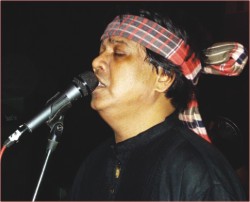 |
Maqsoodul Haque,
photo courtesy : Maqsoodul Haque |
Ayub Bacchu from LRB, an unforgetteble name in the history of bands in Bangladesh, rushed through his education because he was overpowered by his urges to become a full time musician. But he is not hesitant when he says the words, “Education will bring out the best in you, it will teach you to be an individual who knows how to be optimistic and that too in the right way.'' Bacchu, with his typical exuberance towards music has come a long way since the first time he picked up a guitar and is in a position to gradually affect the significance of serious musical performance. He also says, “Back in those days when everything was so new and unknown to us, some of us went into it (music) leaving things behind because we had to do it all on our own. Our seniors were not like what we are today with the young. Many of these young musicians are very talented and we are there to sort of walk the road with them.''
The legendary names of Feedback and Maqsoodul Haque are not unfamiliar to any of us. Maqsoodul believes, “Education must be there but not in certificates, instead in the sense of aesthetics and in the form of a more holistic understanding of things.''
“We played three nights a week in Hotel Sheraton where only the richest in town would come to party and music was a priviledge.Our (the band members) lives then dazzled us but we did not think it had to be the end of our education because we were becoming so increasingly concerned about taking our music to the next level, the agenda being, our launch as record selling musicians. And as far as education is concerned it is important to be a graduate no matter what anyone has to say. I personally believe there is no end to educating oneself.''
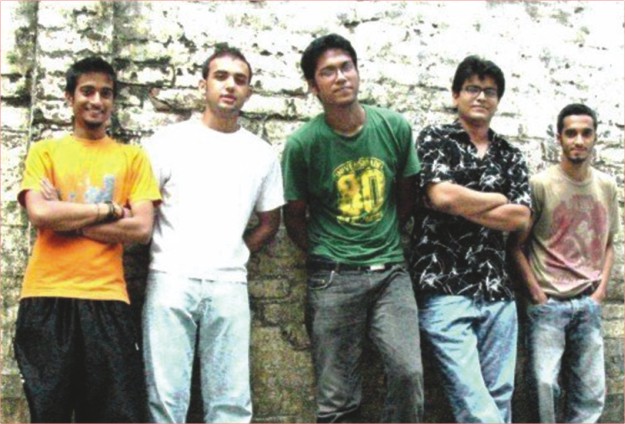
Nemesis, photo courtesy : Nemesis
Bappa Mazumder, a successful mainstream artist and also a member of the band Dolchchutt, was again, a helpless slave to music and did not get a chance to continue his higher education. He became too busy when music was introduced to him as a profession and had no time for a Masters degree. He thinks, “Music as a dedication is ideal but you must find out if it is a realistic one for you. Education on the other hand has to be there. If you are not educated you will not understand music. Education is the way to achieve professionalism, sense of decency and presentation. And if the question arises which remains the matter of more importance, I suggest that education is on top of music. Problem solved.''
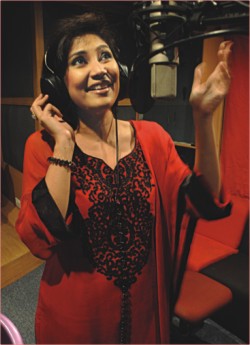 |
Mehreen, Photo : Yamin Tauseef Jahangir |
Music has the capacity to direct one's life and decisions since it is so powerfully internal. It is at the same time physical, emotional and psychological. These factors blend together to provide a most satisfying way of life. Mehreen, a celebrated artist who is identified by her versatility, strongly believes, “Education is of primary importance. It does not matter what you are, a houge manager or even a jhalmuri vendor.You might be talented but to know your talent and more importantly knowing how to use it for enlightment, education is a must. Education will give you moral and spiritual strength, it will act as a thrust to move forward. It will open up knew horizons making life a place for endless possibilities.''
It is sensible to mention that our school systems in general have not taught us the universal importance of music and the arts. But things can look better if we have private music education, increased awareness of the significance of music in the school systems, improved standards in the performers and their range. Studies have found that music participants more often are elected to class offices, receive academic honours, and achieve higher grades than non-music participating students. Through participation in school musical programmes, students gain a sense of discipline, self-esteem, and pride of accomplishment, and they learn to excel in teamwork, problem solving, leadership, and creative thinking. Arts education instils creativity, a facility for problem solving, discipline, and cooperation in young performers. Competencies learned in one art form are in some sense basic and transferable to other subjects. Students, particularly high-risk students, do well in arts education classes yet suffer when confined to learning through a more traditional curriculum.

Shunno, after winning the Best Band award at the Citycell Channel i Music Awards, 2011, Photo courtesy : Shunno
 Many would consider the two things interchangeable but a distinction does exist. Music with education can further humanise the art. Adding education and modern technologies to music can enhance the feelings of simplicity and beauty necessary in music.Without education, fame begins to loom more significantly than the sound of music. One's mind tends to be cluttered with things like popularity and fast money. Making money is acceptable if done the right way and education can help smooth out the edges when it comes to changing attitudes. Music requires such extraordinary energy that the individual cannot handle the pressure all the time and as a result they leave their studies and devote themselves to music. The physical time spent on such matters is obvious. And if one decides to take both into consideration it takes time to get used to the routine. This atmosphere of worry and frustration that comes with the pursuit of music as a profession fatigues the educational process. Thus, the recovery time needed to transfer the consciousness from the education state to the musical state consumes time and energy. The total time of involvement in both the sectors is difficult to calculate but it is extraordinarily distracting to the pursuits of professional music. Naturally, it becomes the toughest thing to master even for the most qualified. Many would consider the two things interchangeable but a distinction does exist. Music with education can further humanise the art. Adding education and modern technologies to music can enhance the feelings of simplicity and beauty necessary in music.Without education, fame begins to loom more significantly than the sound of music. One's mind tends to be cluttered with things like popularity and fast money. Making money is acceptable if done the right way and education can help smooth out the edges when it comes to changing attitudes. Music requires such extraordinary energy that the individual cannot handle the pressure all the time and as a result they leave their studies and devote themselves to music. The physical time spent on such matters is obvious. And if one decides to take both into consideration it takes time to get used to the routine. This atmosphere of worry and frustration that comes with the pursuit of music as a profession fatigues the educational process. Thus, the recovery time needed to transfer the consciousness from the education state to the musical state consumes time and energy. The total time of involvement in both the sectors is difficult to calculate but it is extraordinarily distracting to the pursuits of professional music. Naturally, it becomes the toughest thing to master even for the most qualified.
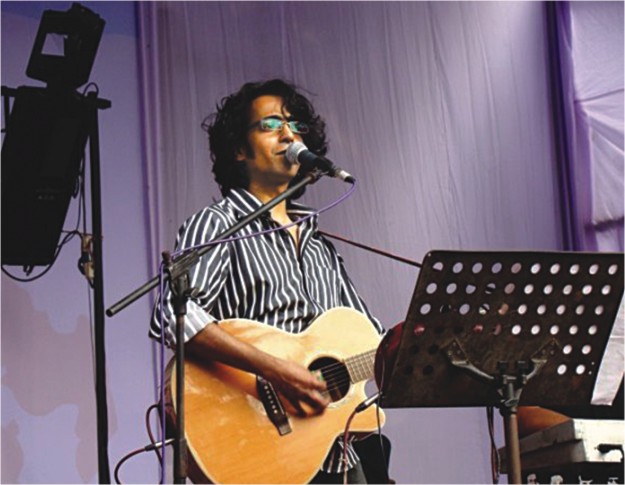
Bappa Mazumder, Photo courtesy : Bappa Mazumder
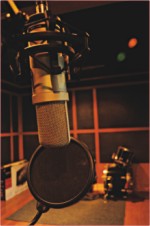 Music as a profession stresses pride -- the pride of a professional pursuing his work to the best of his ability. If music has been chosen as a profession the jokes are, "When are you going to get a real job?" and much more. In reality, it is difficult to find a profession that demands more from its members. This is, of course based on the assumption that the musician is totally committed and involved. Lack of involvement and commitment are not unusual to music. They plague aspects of all professions. Our concern here is only for those who have committed themselves to their music. The time required for excellence in music goes far beyond the time so obvious to the public. The musician is not compensated for practice time yet it is an indispensable part of his profession. The consistent pressure of music can be attributed to the fact that it calls upon physical, emotional and mental capacities of the musician. It can never be "left at the office." This constancy of music can become a serious problem or it can remain a beautiful, flowing undercurrent in one's life. And education will obviously be there to build the musician's identity and help him or her develop his or her personanlity along the way. Music as a profession stresses pride -- the pride of a professional pursuing his work to the best of his ability. If music has been chosen as a profession the jokes are, "When are you going to get a real job?" and much more. In reality, it is difficult to find a profession that demands more from its members. This is, of course based on the assumption that the musician is totally committed and involved. Lack of involvement and commitment are not unusual to music. They plague aspects of all professions. Our concern here is only for those who have committed themselves to their music. The time required for excellence in music goes far beyond the time so obvious to the public. The musician is not compensated for practice time yet it is an indispensable part of his profession. The consistent pressure of music can be attributed to the fact that it calls upon physical, emotional and mental capacities of the musician. It can never be "left at the office." This constancy of music can become a serious problem or it can remain a beautiful, flowing undercurrent in one's life. And education will obviously be there to build the musician's identity and help him or her develop his or her personanlity along the way.
|
Copyright (R) thedailystar.net 2010 |

